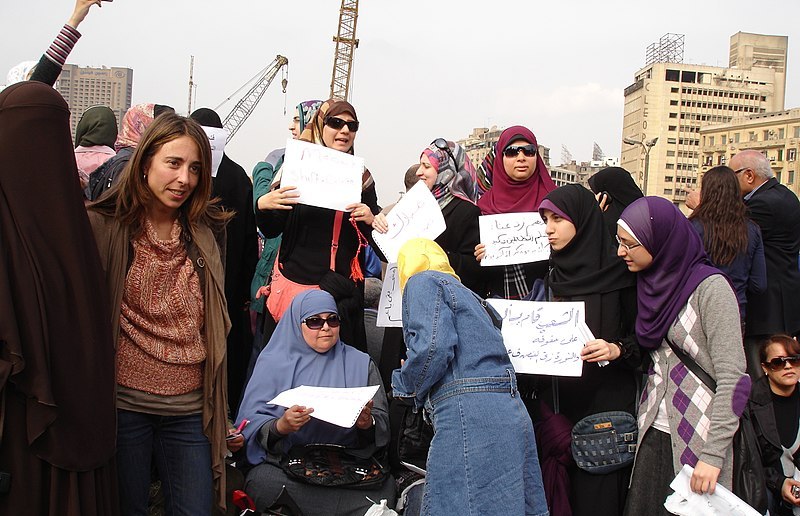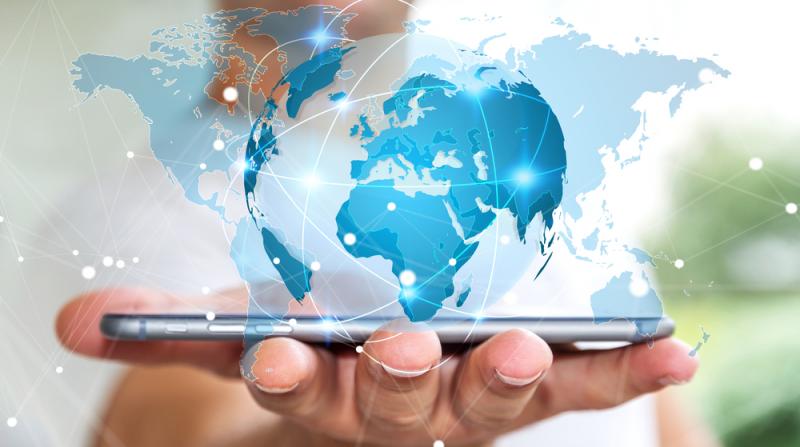In the Wild West that exists online companies are having to grapple with issues such as freedom of expression, hate speech and fake news. Mike Scott reports on how initiatives like the Internet Commission and GNI Principles are trying to help
The online world occupies a strange sort of limbo. Because it is not a physical entity, it spans the globe, and is so all-encompassing that it can seem like normal rules do not apply.
“The digital world is very new,” says Justin Chud, ethics editor of Compassionate Technologies. “In the last 20-30 years, as the internet started to blossom …. it kind of dropped a grand piano on everyone. Companies were focused on growth, growth, growth and governments moved much more slowly.
Despite now being an essential part of modern life, the idea persists that it is the wild west, and anything goes. “Until recently, policy makers have been very much in awe of, and in some senses afraid to challenge [companies],” says Jonny Shipp, a visiting fellow in the Department of Media and Communications at the London School of Economics. “The online giants have not faced pressure to behave ethically.”
Despite the changes the digital world brings, people remain people and the need for the protection of fundamental rights remains a constant
Now, however, the online world is facing some very adult problems, including the need to defend human rights online, such as freedom of speech, the right to privacy and the right not to be subject to hate speech.
“It’s often said that the law should apply online as it does offline,” adds Shipp, who is leading the development of an Internet Commission, an independent initiative for a more transparent and accountable internet. “Despite the rapid development of technology and the changes that the digital world brings, people remain people and the need for the protection of fundamental rights remains a constant.”
However, Lise Smit of the British Institute of International and Comparative Law (BIICL) argues that it is not helpful to talk about generic human rights. “There are different human rights at stake when it comes to online content that require very different forms of protection,” she says.

The internet has brought an upsurge in freedom of expression, and many companies have an explicit commitment to encourage this. BT, for example, says: “We stand up for the right to communicate openly, whenever and wherever possible, because that’s what our business has always been about. The right to free expression isn’t just about freedom of speech, it’s also about the right to information.”
The UN Guiding Principles on Business and Human Rights are clear that businesses should respect human rights wherever they operate. However, this is often easier said than done when it comes to freedom of speech online.
The Council on Foreign Relations, an American non-profit thinktank, points out that “as internet connectivity has spread dramatically throughout the world in the past decade, so has the propensity of governments to disrupt or completely block it”. A lack of internet access represses freedom of expression and threatens livelihoods that depend on network connectivity, it adds, but growth in the use of the internet is coupled with anxiety over its tendency to decentralize power, driving many governments to use it as a tap that can be turned on and off when deemed appropriate.
Every day, in almost every country, technology companies receive requests from governments to censor content or hand over user data
During the 2011 Arab Spring demonstrations in Egypt, when protestors were calling for the end of President Mubarak’s regime and organizing demonstrations using the internet and social media, the government ordered all mobile phone networks to shut down. Vodafone saw this as a violation of freedom of speech and expression, as well as conflicting with its human rights policy. The company kept its network open for as long as it could, until executives were forced at gunpoint to shut it down.
The Global Network Initiative (GNI) was set up by companies, human rights and press freedom organizations, academics, and investors to fight for “internationally recognized rights to free expression and privacy”. “Every day, in almost every country in the world, technology companies receive requests from governments to censor content, restrict access to communications services, or hand over user data,” it says.
When there is a conflict between a company’s values and government requirements, “in order to succeed in the long run companies have to be driven by their values,” Shipp asserts. “If they can’t operate in line with their values, they will have to withdraw. Organizations like the Global Network Initiative are good at reporting those situations – it is one thing that companies can do in their defence.”

The right to freedom of expression also has to be balanced against the danger that this expression is violating other people’s human rights. “Freedom of speech and protecting against hate speech are notoriously contradictory rights and it’s a very difficult balance to achieve,” Smit says.
United Nations investigators earlier this year said that Facebook had played a role in spreading hate speech in Myanmar that contributed to the attacks on the country’s Rohingya people. This is not specifically an internet issue, Smit points out, but the internet has the power to amplify the danger. “Pre-internet, in Rwanda, we saw how hate speech quickly led to genocide,” she says.
Germany and South Africa have explicit laws banning certain types of hate speech as a result of the role that it played in their history.
Governments are going to have to work together because there are no walls, no borders in the digital world
There are questions about whether nations are equipped to deal with human rights on the internet, however. “Traditionally, governments have been pretty walled in when it comes to handling human rights,” says Chud. “But they are going to have to work together because there are no walls, no borders in the digital world.”
The internet is different from other sectors of the economy, such as mining or apparel, because there is no physical product or workplace that can be inspected for compliance. And if someone’s human rights are being violated, for example through the spread of hate speech, it can be carried out by someone in one country on a platform owned by a company that is registered in another country and pays tax somewhere else entirely, making it hard not just to ascertain who is responsible but which jurisdiction deals with the issue.
Nonetheless, the growing number of data breaches and other online scandals such as the Cambridge Analytica affair make it likely that companies will face more regulation in future.

Companies, particularly internet platforms, need to be more open on what they are doing to tackle issues such as harmful and offensive content; security (both online and offline); ethics around artificial intelligence; online advertising and the impacts of fake news on democracy, says Shipp. “We need an environment where processes and procedures to tackle problems are more visible and accountable, and they need to be independent and validated. There’s no doubt that companies are doing a lot to improve their processes, but it needs to be demonstrated.”
At the same time, governments should acknowledge the reality that global platforms operate across the world, he adds.
There are fears that laws such as Germany’s and South Africa’s are placing too much of a burden on companies, as well as failing to recognize the realities of the online world. “All these companies are private, for-profit enterprises and now we’re telling them that they have an insane duty to make sure that human rights are not abused – on a global scale,” says Chud. “Facebook is not the government. It should not be having to deal with this.”
Context is everything when it comes to hate speech – you can’t really expect companies to monitor it on their own
Smit agrees. German law requires internet platforms to take down hate speech within 24 hours. "This is really quick," Smit says. "The law expects the company to make the decision on what is hate speech and what isn’t. It has been heavily criticized as a result and there have been calls for an independent body to decide, such as a court or a state oversight mechanism. But on the other hand, things happen so fast that going to court to remove something is a completely outdated idea.”
Internet companies say the only way to monitor the vast amount of traffic on their platforms will be to use automated processes such as algorithms that highlight certain words or images. Algorithms are problematic because they are developed by people with their own biases and without expert knowledge of human rights, Smit says, adding that “context is everything when it comes to hate speech – who said it, who is the audience, what is the history behind it. You can’t really expect companies to monitor it on their own.

“They are being expected to make decisions that are state obligations. There is not much by way of regulation for companies at all at the moment. There are no regulations for companies to go on, but governments are pushing obligations on to businesses and requiring them to self-regulate. Meanwhile, the public is focused on what companies are doing but not on what governments should be doing to protect their rights,” she adds.
The cross-border nature of the internet means international co-operation is needed to enforce online rights, along with global standards for responsible decision-making, such as the GNI’s Principles. But companies need to recognize that there is a new consensus emerging that technology should work in the service of people, not the other way round, Shipp says. “Companies have been able to pursue their own priorities in an unfettered way,” he adds.
“They have not attended to the ethical and human rights considerations of what they are doing, and they have not been called to account as much as other industries have. Now they are being challenged and they need to prepare for regulation, as well as collaborate with policy makers to ensure that any new rules don’t eliminate the benefits of the digital revolution.”
Mike Scott is a former Financial Times journalist who is now a freelance writer specializing in business and sustainability. He has written for The Guardian, the Daily Telegraph, The Times, Forbes, Fortune and Bloomberg.
This article is part of the in-depth Ethics of Digitization briefing. See also:
New terms and conditions to rein in the data-miners
Taking the heat out of the digital revolution
‘We need everyone in the tech industry to sign up to 100% renewables’
'Europe’s data privacy revolution is far from over’
Will privacy concerns throw up roadblocks for self-driving cars?

